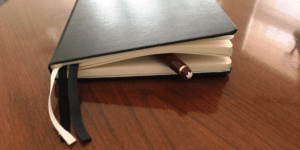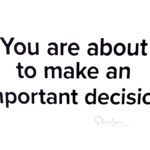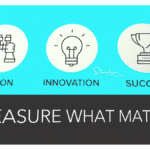A few years ago, I heard about the idea of career journaling during Ultimate Software’s Connections Conference. The idea really intrigued me, but I must admit I didn’t do anything with it. Then I ran across an article on The Muse titled “6 Ways Keeping a Journal Can Help Your Career” and it reminded me to actually do something.
So I decided that I was going to do a 30-day journaling activity and see what I learned. Now, before I tell you my takeaways, I wanted to share a few things that I learned about the journaling process itself.
- Do your homework/research. I was so concerned about “rules.” Pffft. You’ll find that journaling isn’t about rules. But it is what you make it. So consider create a journaling Pinterest board to give you some creative inspiration.
- Understand your goal. Why are you doing it? For me, I wanted to see if I liked it and if I would learn something. And I did – journaling is hard. Considering all the writing I do, I thought journaling would be easy. Nope. It’s a totally different type of writing.
- Select the medium – paper, online, or both. I like paper so I purchased a Bullet Journal. But honestly, I didn’t need it for journaling. I could have used a Moleskin or one of the fancy notebooks we get as conference swag. And there were days I would have loved to type my thoughts versus writing them. Find what you like best.
- Journaling doesn’t have to be pretty. I am envious of the journal pages with beautiful calligraphy. At some point, I had to come to terms with my handwriting. And while you don’t need an expensive pen, I did find that I loved writing with a nice pen.
- Determine the format – free form or prompts. Some people will want to write about what they’re thinking or doing that particular day. I decided to find some writing prompts and wrote based on the prompt for the day. I’m not sure if one is better than another. But if you’re concerned about writer’s block, this could be an option.
- Set a rule – you don’t have to journal every day. I understand the goal is to journal daily, but the real goal is to learn something from the journaling process. So if you have a terrible day and you don’t want to journal – don’t. But make a promise to journal the next day.
- Don’t be your own grammar police. It’s okay to make a typo or mistake. Especially if you’re writing (versus online with spell check!) Just cross it out and rewrite it. Or don’t correct it at all. No one is editing your journal. It’s about putting your thoughts on paper.
- Review/add to older journal posts. I mentioned in #5 that I used prompts for my journaling exercise. There were times when I went back to older posts and added to them. I felt it made the entry more relevant. Journals are a work in progress.
- Occasionally, review your progress. At the end of each week, my journal entry prompt was “What did I learn this week?” Regularly ask the question to make sure journaling continues to accomplish your goals. Don’t be afraid to change your journaling to fit your needs.
I learned a lot during my 30-day journaling exercise. I loved journaling with prompts using bullet points. I didn’t realize it at the time, but my prompts were difficult! Even if you write for your job, journaling is different. Give it a try to see if it’s something you want to add to your personal career development.
Do you journal? Have you tried? Share your experience in the comments.
Image courtesy of Sharlyn Lauby and her career journal.








Donnie Hutchinson says
Great article Sharlyn! I journal about my work-life balance experiences. I give myself prompts with an online journal; however, I do like pen and a nice notebook too. You mentioned something about Pintrest…a journal board. I’m not yet familiar with Pintrest but it sounds like something I will check out.
I believe reflection and writing in a journal is a lost art, yet perhaps, one that others are rediscovering everyday.
Thank you for bringing attention to this great method of getting in touch with ourselves.
Donnie Hutchinson
Author: Lead with Balance
Mary says
I love this post. One of my professors highly recommends journaling with pen and paper and I believe it is very helpful. It is a great way to easily jot my thoughts down and express my feelings without have to think too much. This would be a great technique to install in a company. It would probably bring the stress levels down and be a good outlet to vent.